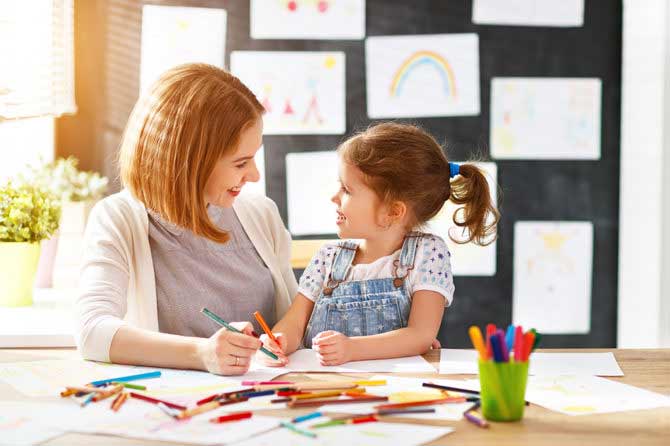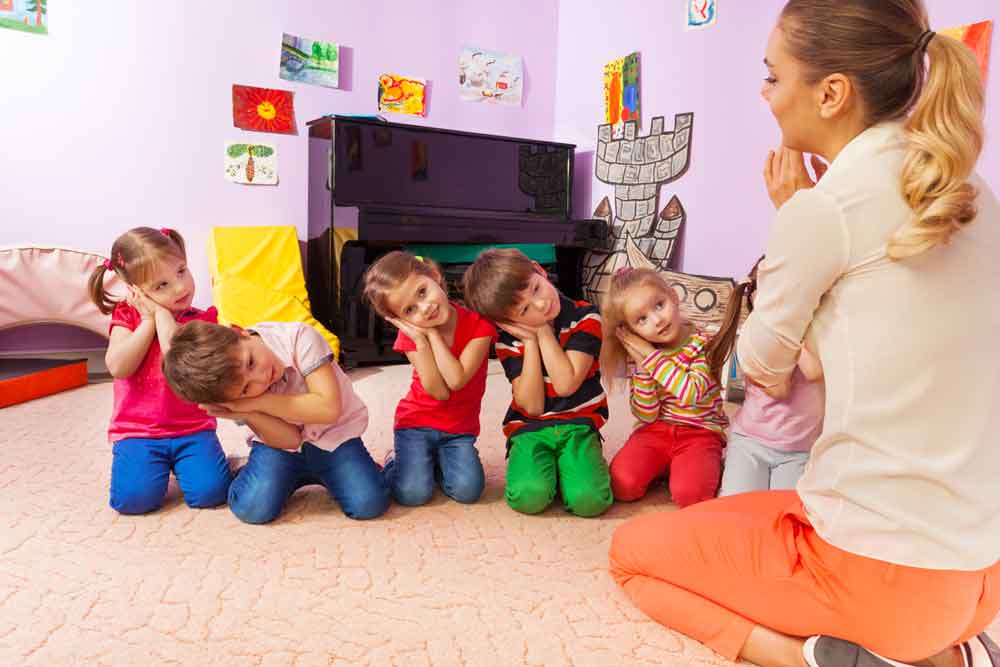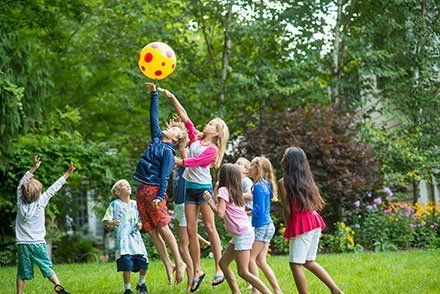Sensory Processing Disorder In Your Toddler And Early Intervention: How Preschool Can Help
Admin • January 6, 2018

Receiving a diagnosis of Sensory Processing Disorder, or SPD, in your toddler is difficult to absorb for you as a parent. You know all too well that your child filters their environment: sights, sounds, taste, touch, and even bodily space, different than their peers. From sound sensitivity to sensory seeking behaviors, your child can be a tornado of activity and outbursts, prone to emotional tantrums and exhausting meltdowns.
With early intervention, your child can learn to interact with the world around them and learn how to socialize, listen, and perform other basic needs successfully. An early intervention preschool program can be beneficial in many ways for your child.
Preschool Creates Routine
Routine is extremely important to your SPD child, whether they are over-sensitive to their surrounding or hypo-sensitive (under-sensitive) to the occurrences around them. Since children with Sensory Processing Disorder are often unable to decipher the happenings around them the way other children do, the slightest change in routine, from an unexpected house guest to misplacing a favorite pair of socks, can send them into an uncontrollable meltdown.
Preschool is all about routine, teaching children how to take turns, transition from one task to another, and interact with one another in positive ways. Since your child will have the same teacher, see the same classmates and encounter the same learning tools daily, they can get into a routine that can make transitioning much easier at home. Routine can also help your SPD child learn to listen and follow basic commands, which will prove to be helpful when they start traditional school.
Preschool Brings Out Their Skills
Your child has unique talents all their own just like other children do, and preschool activities (like painting, simple mathematics and musical activities) can help bring their interests out. In turn, your child can learn to be more confident in themselves and their individuality.
Studies have shown that children who play new activities learn to master new skills, which, in turn, brings confidence to a positive level. In addition to learning the basics of education at an early age: shapes, letters, numbers, and colors, your child will discover their own talents that you can encourage at home.
Preschool Encourages Positive Social Behavior
Children with SPD often have a hard time interacting with others. They either don't enjoy being touched or having their space invaded, or they don't know how to interact softly and tend to bully other children around. Since children with Sensory Processing Disorder use their senses differently than other kids, they may not pick up on social cues that are "the norm" with their peers.
Preschool teachers teach all children how to interact with one another positively, using close one-on-one attention and contact to help your child play successfully with other children and learn to share. As you meet with your child's potential teacher, explain the social concerns you have with your child, such as:
- Not taking turns
- Not sharing
- Hitting, biting or scratching
- Not interacting with others
Your child's preschool teacher
will come up with a personalized plan for your toddler to help them learn how to play with other children in positive, helpful ways.
You want the best for your child and allowing them to reach their fullest potential begins with early intervention. Your child's preschool teacher will take their diagnosis and use it to help come up with a personalized learning plan that will work best for your child's needs.
With the right preschool program, your child can learn to thrive. Contact our knowledgeable team of educational experts at The Learning Centers to help you find your child the right learning program for their special needs.









